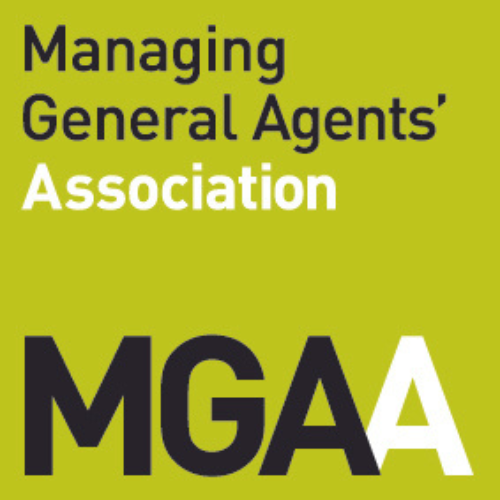8th of December is the deadline by when the FCA is expecting firms which have Appointed Representatives (ARs) and/or Introducer Appointed Representatives (IARs) to have made provision for the new Supervision rule updates (SUP 12 in the Handbook), as set out in their Policy Statement paper PS22/11 published 3rd August.
That Statement runs to 145 pages but the core of it is relatively easy to summarise:
- The regulator has seen evidence of poor outcomes for customers directly arising from the AR sector of the market;
- They are therefore changing the rules to address this, having consulted with market participants and interested parties;
- The final rules are (slightly) less extensive than originally slated;
- The new rules aim to improve the landscape and create better outcomes;
- Principal firms which have ARs and IARs must do more to monitor, oversee and control their ARs and IARs.
- More data will be required from firms by the regulator about ARs and IARs.
So far, so good.
The New Rules – A Reminder
To briefly summarise the new rules:
- ARs need to be reviewed annually (if you are not already doing so). This cannot be ‘delegated’ to another Principal if there is a Multi-Principal Agreement (MPA) – how well do you understand the AR as a company and business model? Are they solvent and stable?
- directors, partners, proprietors and managers at ARs to be assessed for competence and capability – consider experience, training, available time and resource
- controllers, directors, partners, proprietors and managers to be assessed for fitness & propriety – what do you do for your own staff? Is that system fit for purpose as it stands?
- Ongoing oversight to be comparable to that for firm’s own employees.
- Consumer harm risks to be assessed: business model, governance, number of clients, vulnerability of clients, extent of potential client financial loss, increased complaints (impact of), business failure, reputational damage, impact on the Principal.
- Firms to be clear on termination circumstances and plan for orderly run-off; contracts may require amendment. You should include the option to terminate if you determine that you can no longer effectively oversee the AR activities.
- Firm to annually confirm the AR details on the FS Register.
- Pre-notification to the FCA of any new AR – 30 days prior to appointment (NB this is after due diligence checks) – remember appointment does not mean trading can start. You need FCA approval of the AR and its Approved Person(s)
- Pre-notification to the FCA of any proposed changes to regulated activities of existing ARs – 10 days.
- Annual complaints and revenue data reporting required – how do you and the AR record complaints and revenue?
- Ensure all information on the AR is up to date and maintained as such. Raise issues pro-actively – subscription monitoring services are available which may help, but at the heart of this is having a good relationship with the AR
The new rules also come on the back of publicised cases such as that of Principal firm Alsford Page & Gems Ltd in April 2021 who were forced to compensate customers to the tune of nearly £400,000 for failures by its ARs in the extended warranty market. A cynic would point out that the traditional commercial insurance sector does not feature much in the published list of failures but the new rules do not make any exceptions so all regulated firms which have ARs or IARs are impacted.
Regulatory Hosting
If you are not familiar with the term, this involves firms that assume regulatory responsibility for the oversight & control of individuals and other firms undertaking regulated activities but not themselves directly overseen by the FCA.
If you are a hosting firm, handling outsourced services such as compliance and finance for a network of ARs, you are impacted more deeply by the new rules. Regulatory hosting firms may not be directly engaged in the markets that their ARs are in and may not be carrying on regulated activities themselves. The FCA stated in in its consultation paper CP21/34, the precursor to the Policy Statement, that their analysis of complaints showed that the AR networks of regulatory hosts have, on average, more complaints against them compared to other principals. In the Policy Statement itself they report that “the majority of respondents agreed with our assessment that there is harm associated with the regulatory hosting model.”
Firms should also note that the FCA has said that it is considering further actions targeting Regulatory Hosts, but requires legislative change to allow these. It has intimated that the SM&CR framework could be widened to take into account Control Function roles at ARs, and thus simplify the regime. Whilst some respondents to the consultation paper suggested that the AR regime itself was no longer fit for purpose, the FCA are in fact currently unable to phase it out because of the limits of their powers; but that this even gets mentioned is worthy of note.
There is also the suggestion of ‘covert activity’ by ARs, which Principals may not be aware of (i.e. outside the permitted activities under the AR Agreement) and are not responsible for, so clearly a risk to customers. If the market wants to retain ARs then the market must ensure ARs perform appropriately and properly.
The FCA consider the benefits of the proposals warrant the proposed interventions.
Some deep thought may be needed, even to the extent of why you retain ARs; certainly some brokers are reviewing their portfolio and are likely to reduce numbers because of the additional burden of responsibility. The FCA’s own Annual Report for 2021/22 notes a reduction in AR notifications for that year, compared to an increase in the previous year. But terminations can themselves bring some headaches, as orderly run-off is required; remember the customer’s best interests principle, soon to be upgraded with the introduction of the Consumer Duty.
What Happens Now?
Hopefully, firms with ARs or IARs have been actively adapting their processes over the last few months to ensure they are able to meet their new obligations effectively. At a minimum, we would expect to see Principals have made the following changes:
- Firms should haveprimed their ARs regarding the new rules. Co-operation will be vital, as will an understanding of the regulatory environment and the objectives, power and reach of the regulator. Any new ARs will now need to be justified to the FCA, and it is unlikely that simply ‘making money’ will be sufficient reason.
- Firms should be ready to respond to new data requests from the regulator ensuring they are able to provide information that includes:
- the reasons for any new appointments,
- the nature of regulated business,
- Whether any unregulated business is conducted,
- Anticipated revenue,
- The nature of financial arrangements between principal and AR (how much commission are you sharing and is it justified? Remember the Fair Value rules),
- Complaints information, and
- Whether the AR is part of a group (who’s in control?).
We may see further intervention in the new year once all the required data is in.
Times winged Chariot is at our backs, as the poet Andrew Marvel wrote.
Conclusion
For many firms, the new rules have proved to be the catalyst to a re-evaluation of their business models as they consider whether the rewards of acting as Principal outweigh the obligations that come with the territory. In reality, responding to the new rules has been easiest for those who have made regulatory hosting their business model. They may have been singled out for greater scrutiny in the Discussion Papers and Policy Statement, but they have also been best placed to react with their typically greater level of resources available to respond to the necessary changes. For those firms, this should prove to be the start of a new era. We suspect the regulator’s fears will be that for many principals, the reality might simply be ‘more of the same’.
If you are still unsure whether your firm has taken all the necessary actions to respond appropriately to the new rules, please do speak with Andrew Carrick, or any member of the ICSR team for advice.









